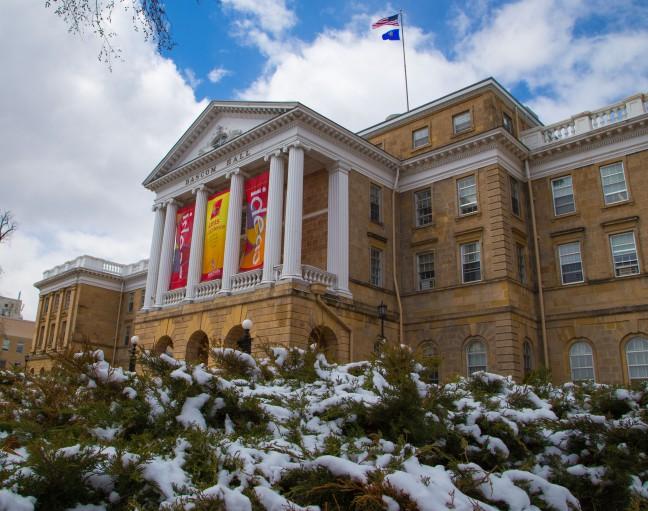The Associated Students of Madison said Tuesday that its requests to speak at University of Wisconsin System Board of Regents meetings have been denied because the regents have been “too busy.”
In a joint interview with The Badger Herald and The Daily Cardinal, ASM leaders expressed concerns over the regents’ accessibility, especially as Gov. Scott Walker’s budget seeks to expand their power.
Walker’s biennial budget proposal creates a UW System “public authority” that would have more autonomy than other state agencies, although some have raised concerns that Walker’s proposal gives too much power to the regents.
Concerns arise over Board of Regents power with UW System changes
ASM Legislative Affairs Chair Tom Gierok said ASM’s requests to speak at regents meetings have been met with replies that the regents are “too busy.” To ASM, Gierok said, the Board of Regents “isn’t being accessible.”
“They’re going to have to increase [student accessibility] if they expect to get the power that they’re going to get,” Gierok said. “How do you hear the student voice? That’s what we’re trying to face. There’s no clear way. Because there’s no precedent, we’re trying to figure out where to go.”
Two students sit on the 18-member Board of Regents, including UW-Madison student Nicolas Harsy.
Among ASM’s top concerns, its leaders said, is that Walker’s proposal eliminates the shared governance language that currently exists in state statutes. They also raised concerns that once the UW System has more autonomy, it could spike tuition rates dramatically, in part to deal with the $300 million in cuts Walker has proposed for the system.
The regents have promised that they’ll keep that shared governance language if the UW System does become a public authority and maintain affordable levels of tuition. But Gierok cautioned that ASM isn’t sure it should fully trust the regents.
“Students don’t get floor time [or] talk time,” Gierok said. “The power that we’re handing over to the Board of Regents won’t be the most efficient if students are not further included.”
Board of Regents tackles public authority, looks to protect shared governance, tenure
ASM Chair Genevieve Carter said more study is needed before the UW System becomes a public authority, calling the task an “enormous undertaking.” At other institutions, she said, similar transitions occurred after months, if not years, of studying the potential impacts.
Carter said she would like to see an effort from the Board of Regents to examine the impacts before a public authority is implemented.
“If the Board of Regents really wants this transition to happen, I think it’s their responsibility to be engaging stakeholders, not just faculty and staff, but students as well, to say how will this actually impact your campuses, how will this actually impact your educational experiences,” Carter said.
Explained: What does the public authority mean for UW System?
ASM is trying to juggle both the proposed budget cuts and the public authority at the same time, and there has not been enough time to have a comprehensive conversation with the student body, Gierok said.
Madison Laning, ASM Finance Committee chair, said students need to know sooner rather than later if a raise in out-of-state student tuition will occur to make up for budget cuts.
ASM over the years has repeatedly sought more control of the allocation of segregated fees, which students pay each semester to fund campus services, activities and groups.
Carter said UW System President Ray Cross has raised the possibility of freezing segregated fees, but she called the “unprecedented scrutiny” on the fees concerning.
“One of the most important abilities students have is to fund student groups on campus,” Carter said. “If there are limitations placed on our abilities to regulate segregated fees, that’s hugely concerning, especially because of the important services we’re able to fund.”
ASM Rep. Jessica Franco-Morales addressed concerns regarding recruitment and retention programs for students of color. Under Walker’s proposal, many legal requirements for UW will no longer exist, including the requirement to have retention programs, she said.
“It’s really scary because UW thinks we go above the requirements and what happens when the requirements are struck?” Franco-Morales said. “Not a lot of people are talking about the implications on already marginalized students on campus.”














